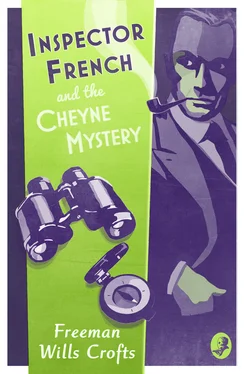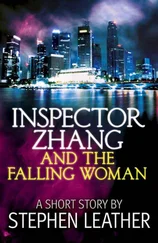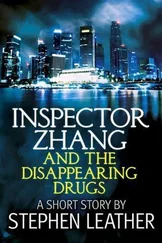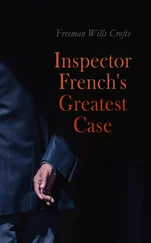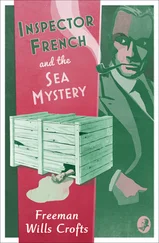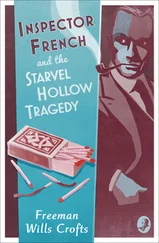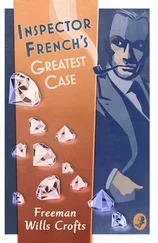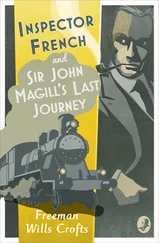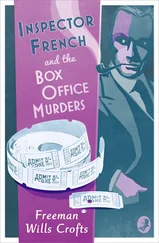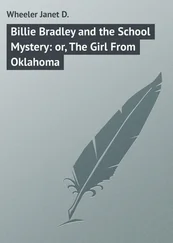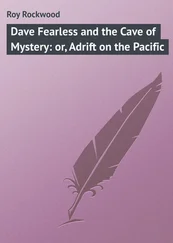‘I’ll see you in hell first,’ Cheyne shouted, his rage once again overwhelming him. ‘You’ll pay for this, I can tell you. It’ll be the dearest trip you ever had in your life,’ and he proceeded with threats and curses to demand the immediate opening of the door. Lamson, a whimsical smile curling his lips, shrugged his shoulders at the outburst, and replied by withdrawing his head from the opening and sliding the panel to.
Cheyne, left once more in almost complete darkness, sat silent, his mind full of wrath against his captors. But as time passed and they made no sign his fury somewhat evaporated and he began to wonder what it was they wanted with him. His rage had made him thirsty, and the mere fact that Lamson had stated that nothing would be given him to drink, made his thirst more insistent. It was impossible, he said to himself, that the scoundrels could carry out so diabolical a threat, but in spite of his assurance, little misgivings began to creep into his mind. At all events the vision of his usual cup of afternoon tea grew increasingly alluring. When therefore after what seemed to him several hours, but what was in reality about forty minutes only, the panel suddenly opened, he admitted sullenly that he was prepared to listen to what Lamson had to say.
‘That’s good,’ the young man answered heartily. ‘If you could just see your way to humour us in this little matter there is no reason why we should not part friends.’
‘There’s no question of friends about it,’ Cheyne declared sharply. ‘Cut your chatter and get on to business. What do you want?’
A smile suffused Mr Lamson’s rough-hewn countenance.
‘Now that’s talking,’ he cried. ‘That’s what I’ve been hoping to hear. I’ll tell you the whole thing and you’ll see it’s only a mere trifle that we’re asking. I can put it in five words: We want Arnold Price’s letter.’
Cheyne stared.
‘Arnold Price’s letter?’ he repeated in amazement. ‘What on earth do you know about Arnold Price’s letter?’
‘We know all about it, Mr Cheyne—a jolly sight more than you do. We know about his giving it to you and the conditions under which he asked you to keep it. But you don’t know why he did so or what is in it. We do, and we can justify our request for it.’
The demand was so unexpected that Cheyne sat for a moment in silence, thinking how the letter in question had come into his possession. Arnold Price was a junior officer in one of the ships belonging to the Fenchurch Street firm in whose office Cheyne had spent five years as clerk. Business had brought the two young men in contact during the visits of Price’s ship, and they had become rather friendly. On Cheyne’s leaving for Devonshire they had drifted apart, indeed they had only met on one occasion since. That was in 1917, shortly before Cheyne received the wound which invalided him out of the service. Then he found that his former companion had volunteered for the navy on the outbreak of hostilities. He had done well, and after a varied service he had been appointed third officer of the Maurania , an eight-thousand ton liner carrying passengers, as well as stores from overseas to the troops in France. The two had spent an evening together in Dunkirk renewing their friendship and talking over, old times. Then, two months later, had come the letter. In it Price asked his friend to do him a favour. Some private papers, of interest only to himself, had come into his possession and he wished these to be safely preserved until after the war. Knowing that Cheyne was permanently invalided out, he was venturing to send these papers, sealed in the enclosed envelope, with the request that Cheyne would keep them for him until he reclaimed them or until news of his death was received. In the latter case Cheyne was to open the envelope and act as he thought fit on the information therein contained.
The sealed envelope was of a size which would hold a foolscap sheet folded in four, and was fairly bulky. It was inscribed: ‘To Maxwell Cheyne, of Warren Lodge, Dartmouth, Devonshire, from Arnold Price, third officer, S.S. Maurania ,’ and on the top was written: ‘Please retain this envelope unopened until I claim it or until you have received authentic news of my death. Arnold Price.’ Cheyne had acknowledged it, promising to carry out the instructions, and had then sent the envelope to his bank, where it had since remained.
The insinuating voice of Lamson broke through his thoughts.
‘I think, Mr Cheyne, when you hear the reasons for our request, you will give it all due consideration. For one—’
What? Break faith with Price? Go back on his friend? Rage again choked Cheyne’s utterance. Stutteringly he cursed the other, once again demanding under blood-curdling threats of future vengeance his immediate liberty. Through his passion he heard the voice of the other saying he was sorry but he really could not help it, the panel slid shut, and darkness and silence, save for the sounds of the sea, reigned in the Enid’s cabin.
When Maxwell Cheyne’s paroxysm of fury diminished and he began once more to think collectedly about the unpleasant situation in which he found himself, a startling idea occurred to him. Here at last, surely, was the explanation of his previous adventures! The drugging in the hotel in Plymouth, the burglary at Warren Lodge, and now his kidnapping on the Enid were all part and parcel of the same scheme. It was for Price’s letter that his pocket-book was investigated while he lay asleep in the private room at the Edgecombe; it was for Price’s letter that his safe was broken open and his house searched by other members of the conspiracy, and it was for Price’s letter that he now lay, a prisoner aboard this infernal launch.
A valuable document, this of Price’s must surely be, if it was worth such pains to acquire! Cheyne wondered how it had never occurred to him that it might represent the motive of the earlier crimes, but he soon realised that he had never thought of it as being of interest to anyone other than Price. Indeed, Price himself referred to his enclosure as ‘some private papers, of interest to myself only.’ In that last phrase Price had evidently been wrong, and Cheyne wondered whether he had been genuinely mistaken, or whether he had from distrust of himself deliberately misstated the case in order to minimise the value of the document. Price had certainly not shown himself anxious to regain it at the earliest possible moment. On the conclusion of peace he had not accepted demobilisation. He had applied for and obtained a transfer to the middle East, where he had commanded one of the transports plying between Basrah and Bombay in connection with the Mesopotamian campaign. So far as Cheyne knew, he was still there. He hadn’t heard of him for many months, not, indeed, since he went out.
While Cheyne had been turning over these matters in his mind the launch had evidently been approaching land, as its rather wild rolling and pitching had gradually ceased and it was now floating on an even keel. Cheyne had been conscious of the fact despite his preoccupation, but now his musings were interrupted by the stopping of the motor and a few seconds later by the plunge of the anchor and the rattle of the running chain. In the comparative silence he shouted himself hoarse, but no one paid him the least attention. He heard, however, the dinghy being drawn up to the side and presently the sound of oars retreating, but whether one or both of his captors had left he could not tell. In an hour or two the boat returned, but though he again shouted and beat the door of his cabin, no notice was taken of his calls.
Then began for Cheyne a period which he could never afterwards look back on without a shudder. Never could he have believed that a night could be so long, that time could drag so slowly. He made himself as comfortable as he could in one of the bunks, but as the clothes and the mattress had been removed, his efforts were not crowned with much success. In spite of his weariness and of the growing exhaustion due to hunger, he could not sleep. He wanted something to drink. He was surprised to find that thirst was not localised in a parched throat or dry mouth. His whole being cried out for water. He could not have realised nor described the sensation, but it was very intense, and with every hour that passed it grew stronger. He turned and tossed in the narrow bunk, his restlessness and discomfort continually increasing. At last he dozed, but only to fall into horrible dreams from which he awaked unrefreshed and thirstier than ever.
Читать дальше
